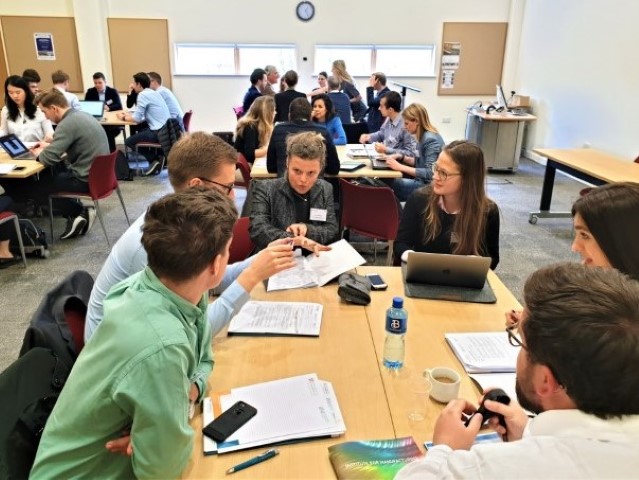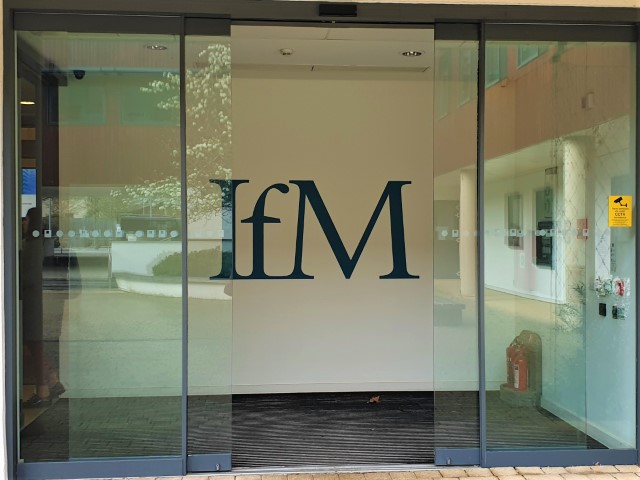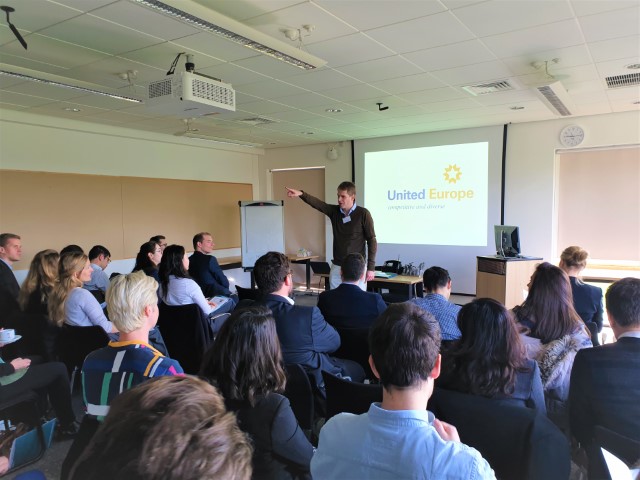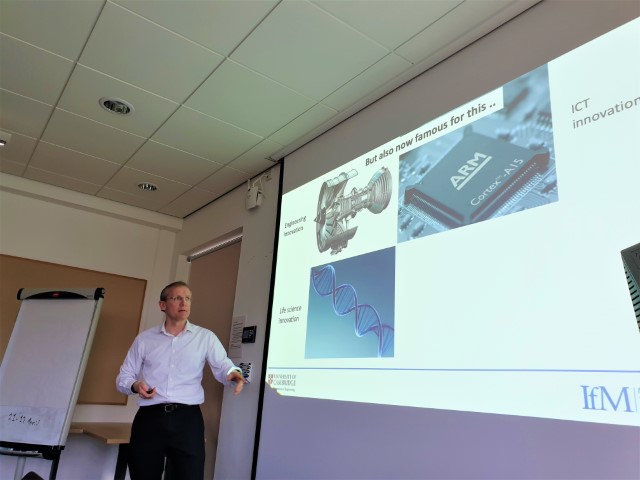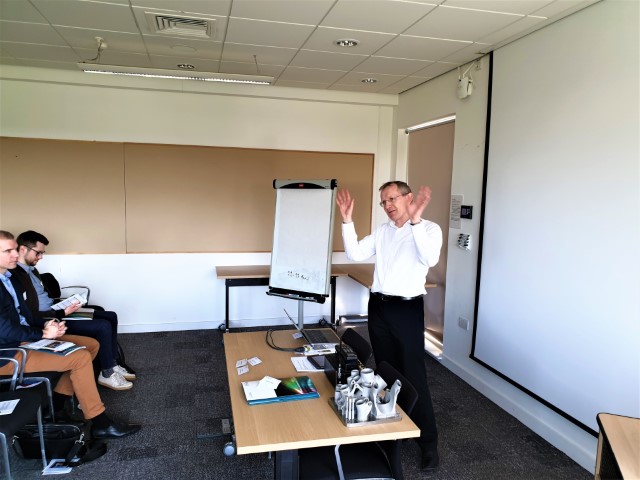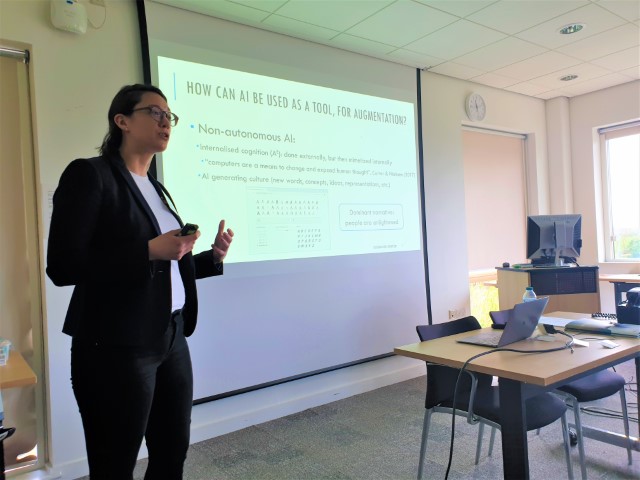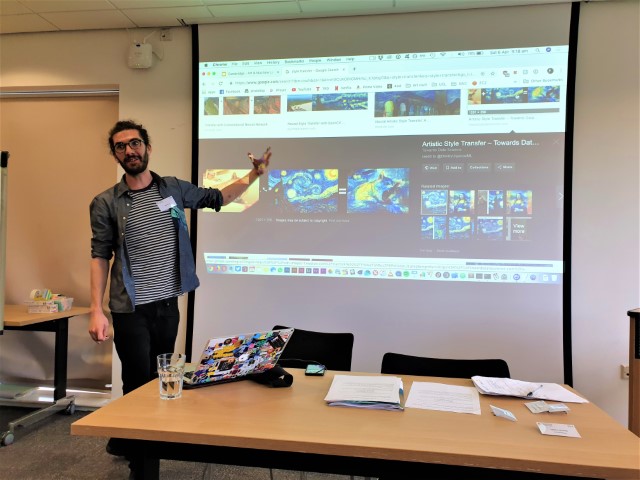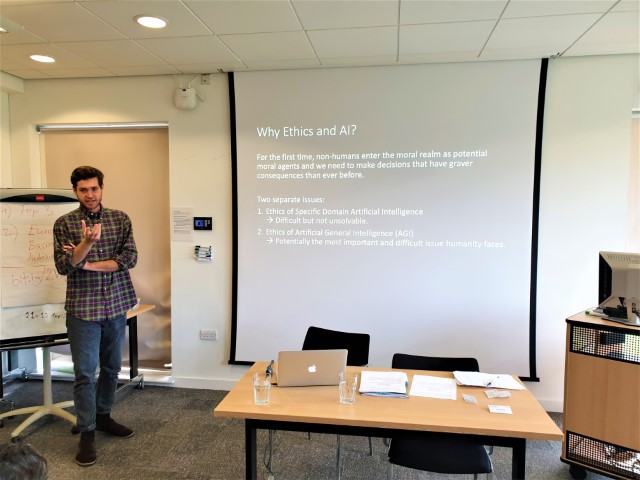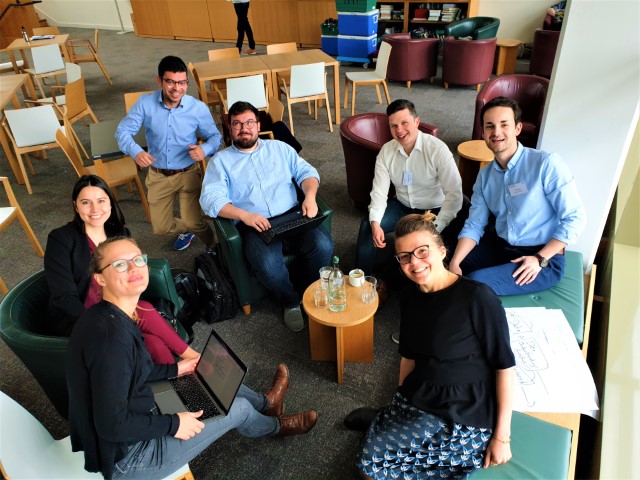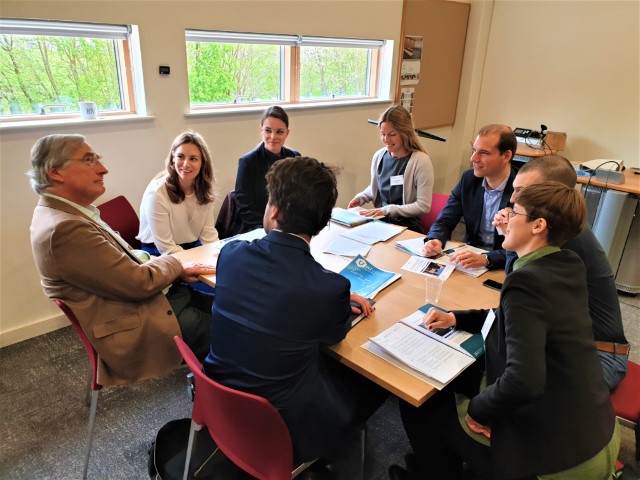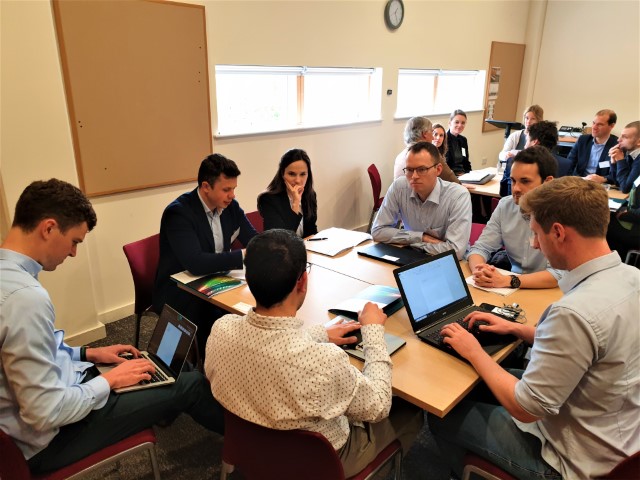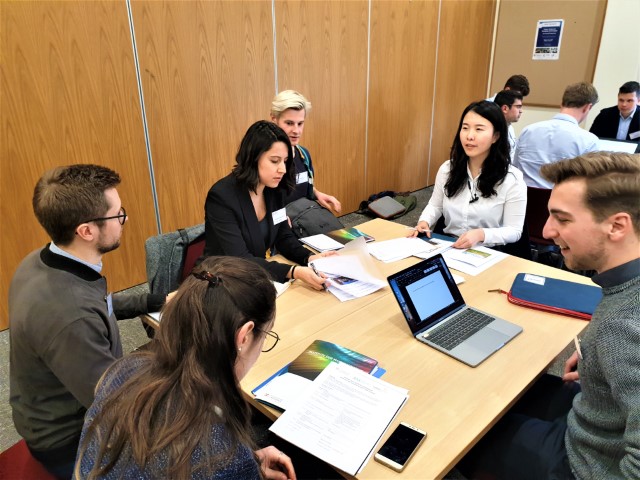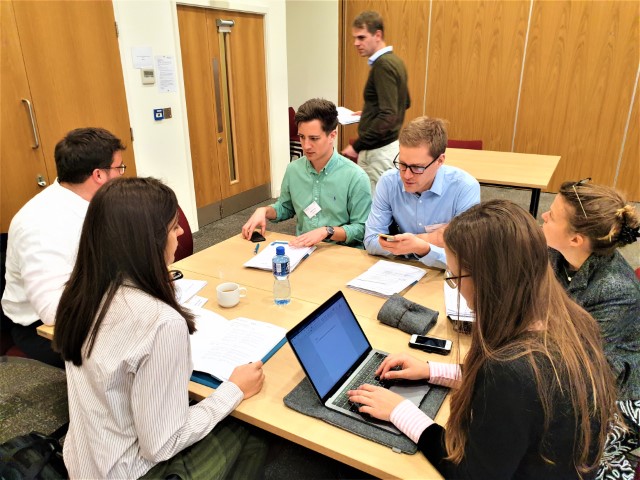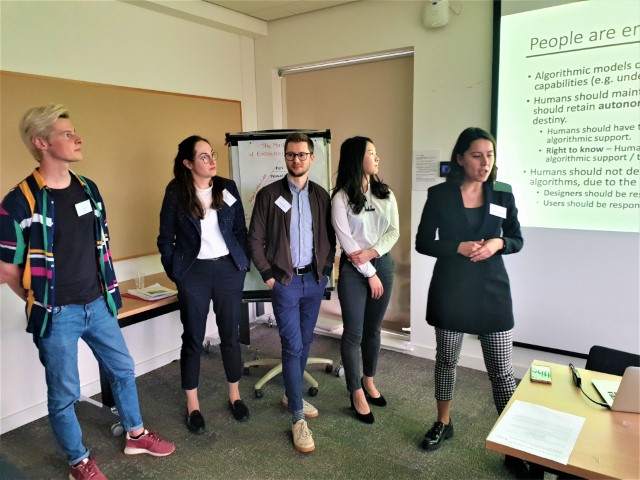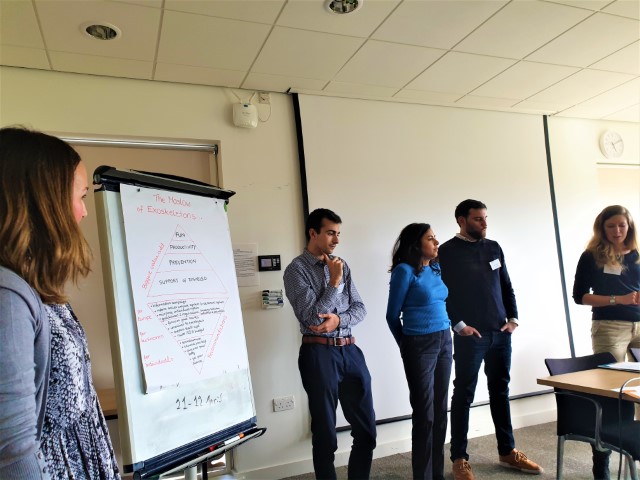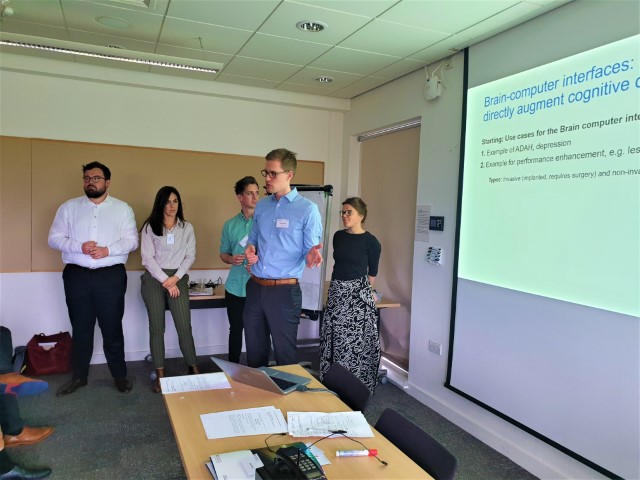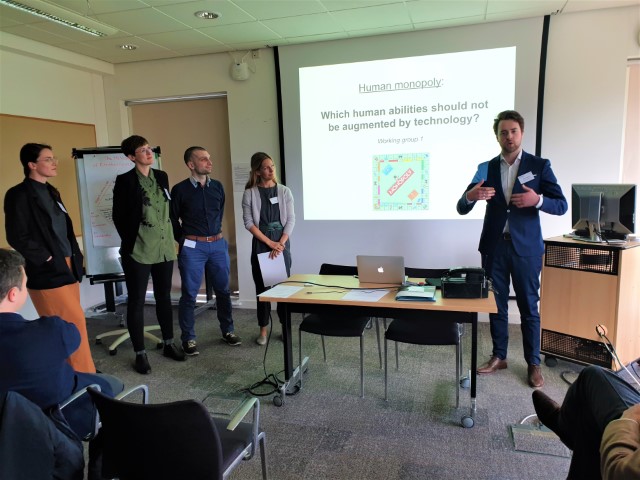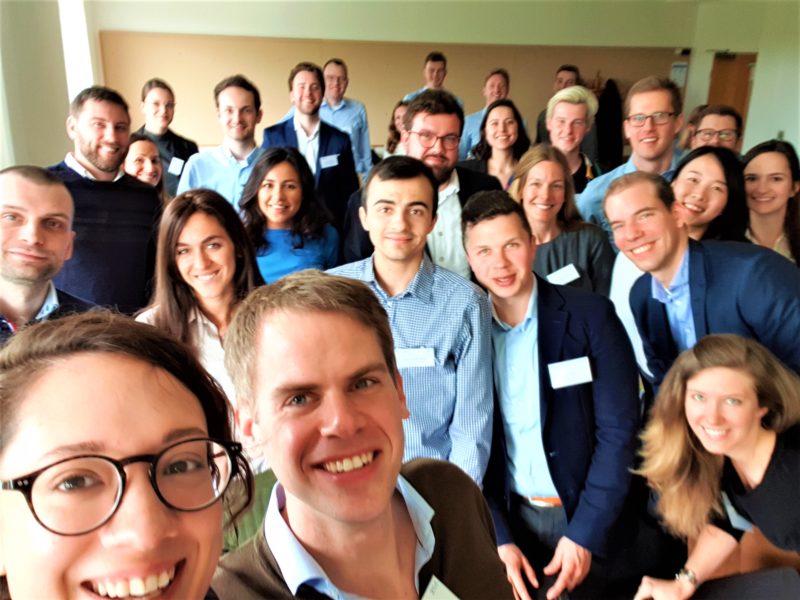From April 5-6, 2019 United Europe and the University of Cambridge’s Department of Engineering invited 25 Young Professionals to Cambridge to work on the current issue of human and artificial intelligence and how new technologies may impact humans’ work and lives in the future.
Prof. Dr. Tim Mishall gave an introduction to his Institute of Manufacturing (IfM) that aims to prepare engineers for the 4th industrial revolution. The institute further focuses on ICT and life science innovation and seeks to assist entrepreneurial mindsets in tech which benefit from high exposure to global investors. About 1,200 tech companies are currently based in Cambridge.
Dr. Thomas Bohné elaborated on the varieties of AI research and the current research projects the IfM is working on. Dr. Bohné explained that yet, despite immense pools of knowledge and talents, the EU seems far behind countries such as China and the US in some key technological developments. If Europe does not just want to be a spectator but a technology leader, it must strategically use its resources. It further is crucial to ponder important questions such as how to deal with technological progress and in what ways technology can be used effectively to benefit society.
Dr. Karina Vold from the Leverhulme Centre for the Future of Intelligence gave a presentation on how technology augments human abilities and mentioned the cognitive tools that are used in AI, underpinned by practical examples. Dr. Vold raised the question of” what if AI were a part of you?” to explain the ethics, the risk, the impact, and the responsibilities of decision-making loops created by AI. Further, the issue of who should have access to use Al was brought up, too. Finally, Dr. Vold concerned herself with how to deal with the fact that the Al culture generates new words, concepts and ideas, given the fact that computers are regarded as a means to alter and expand human thought.
Jake Elwes, an independent artist from London, presented on how AI technology and big data are currently used by artists and create new forms of art. He showcased a number of impressive examples that results when 40.000 digital impressions overlap in one picture or movie.
The Philosopher and Politician Korbinian Rüger from Oxford University spoke about the Ethics of AI and what changes if non-humans enter the moral realm as potential moral agents. He differentiates between the manageable domain-specific AI technology and Artificial General Intelligence that is difficult for humans to manage without a moral theory behind. The development of these technologies can be seen as both positive and promising, and as negative and frightening. On the one hand, automating work supported by robots and artificial intelligence assures higher productivity, economic growth, and increased safety and convenience. However, these technologies also raise complicated questions regarding their broader impact on jobs, skills, wages, and the nature of work. It is, therefore, a pressing topic of our time and paramount to reflect on it.
The Young Professionals worked in groups subsequent to the impulses on the question, which human abilities should not be augmented by technology, how intelligent exoskeletons assist manual labor, how digital twins can improve human productivity and human decision making be supported in the digital sphere. Questions of day two were amongst others: How we can get AI to do what we want it to do? How can we avoid algorithmic biases about the intrinsic value of work? What if we run out of things to do? Can we care for all without hindering innovation?
New technologies such as artificial intelligence, robotics, and virtual reality are likely to be among the most important innovation topics in the next few years and are posed to substantially change our lives and the nature of work. Yet, despite immense pools of knowledge and talents, the EU seems far behind countries such as China and the US in some key technological developments. If Europe does not just want to be a spectator but a technology leader, it must strategically use its resources. And it must ponder important questions such as how to deal with technological progress and how technology can be used positively for the benefit of society.
We thank Prof. Tim Minshall, Dr Thomas Bohné, their team and the IfM for hosting us and for the great support!



